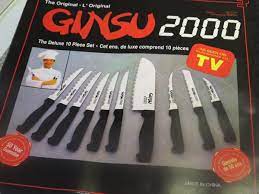
Selling. The very idea conjures up images of pushy, ruthless individuals peddling whole life policy insurance, Ginsu knives, or used cars – all committed to the same of objective. “Get their confidence, get their friendship, get their trust, then get their money,” as Kurt Russell’s character in the film Used Cars instructed his salesforce. It’s unfortunate that sales have that reputation because whether we’re employees pitching colleagues on a new idea, entrepreneurs enticing funders to invest, or parents and teacher cajoling children to study, we spend our days trying to move others. Selling is a part of life. If you’re a working author with hopes of staying a working author, it must be a part of your life, too.
Advertising what we have is not merely a human phenomenon, but a biological impulse found throughout the natural world. Peacocks attract mates through a multicolored feather display, the puffer fish draws attention creating symmetrical patterns in the sand, and both the duck and gecko offer a broad range of attractively priced car-insurance packages.
The job of writing doesn’t end with creating a quality book. The notion that a publisher has the sole responsibility for selling your book is antiquated. Most publishers won’t set up book events for you, pay for print or digital ads, arrange for guest appearances on podcasts or regional morning news shows, have bookmarks or postcards made, and they won’t purchase billboard space to promote your newest title on Sunset Boulevard. Believe me, I’ve asked.
Your publisher may send out a press release announcing the release of your book and send review copies. They may make sure you have enough books on hand for a signing or pay for a poster to display at that signing. Regardless of what they will do there are actions authors need to employ to make sure a book sells.
I’ve been writing about women in the Old West for more than twenty-eight years. I’ve made the New York Times Bestseller list three times. I’m sure there are some who will read that and think, “My stuff is much better than anything that big-haired woman has written. I should be on that list.” You might be right, but there’s more to it than just the material. That’s where selling, and promotions come in.
The marketing tips I offer here are for all the authors who have emailed or phoned to ask the best way to sell their books during the pandemic.
Create an Email List
Having a website is not enough. Without the contact information, nothing else will work. Many publishers and agents will not take you on as a client unless you have a strong, targeted email list. Having several thousand targeted ‘contacts’ of a particular demographic profile suggests that many will buy your book when it is released. Without them, your website will not have the power to draw business. Create a strong email list or avid readers, bookstores, and museums before spending your time on social media advertising.
Virtual Book Promotions
Once you have set the email list process in motion, ramp it up and attract more readers by creating free website content. Examples include short newsletters, special reports, podcasts, and live video presentations. Seek out organizations that are looking for speakers for their virtual programs. Authors sell books when they make personal appearances, but it’s not impossible to sell books at virtual events. Before you commit to giving a ZOOM or Google Meets presentation, ask the producer of the event if they would commit to purchasing a dozen of your books.
There are some authors who find the whole idea of peddling their product in such a way distasteful. For them literature is not a #teamfollowback sport. Those authors might be content with only selling a couple hundred copies of their book. On the other hand, if you’re a writer like Kat Martin or Kathleen and Michael Gear readers come looking for you. I’ve never personally experienced this and that’s why I employ a variety of marketing techniques to let buyers know my books are out there.
It’s a bit of work, but at least I’m selling something I feel strongly about, as opposed to Ginsu knives.

